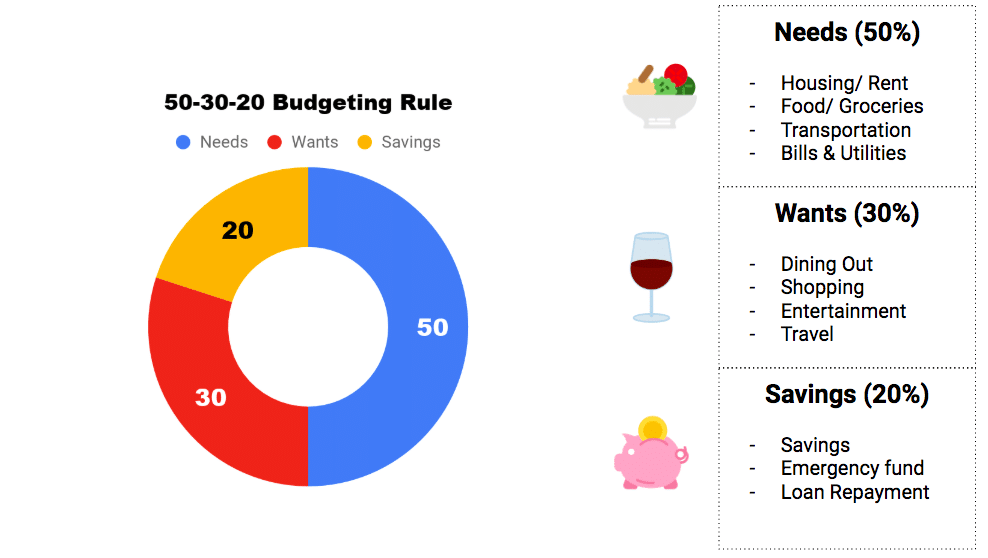Table of Contents
12 minute read (free gifts at the end of the article)
A common question that runs through our minds:
“How to save money?”
“I don’t even have enough to get by…”
In this article we try to address this question you have in your head.
And we have a free gift for you to help you with your money saving efforts.
Imagine never having to worry about money again.

You can afford everything you need in life, and you don’t get anxious about money because you know you have enough of it.
Maybe one day you can even afford the luxuries you’ve been wanting like that fancy new car, holiday or computer without feeling guilty about spending that much money.
It all starts with the habit of saving money.
If you create this habit the right way, it will stick with you for life and one day you will never have to worry about money again.
In this article we go through:
- How money slips through the hands of the majority of people and stays in the pockets of those who know how to use it
- Why you don’t need a high salary to save money
- Practical methods on how to save money today.
When seeking advice about how to save money, most people just tell you their tactics or strategies.
But without understanding the principles behind saving money first, it’s unlikely that you will keep these money-saving tactics or strategies as a habit in your life.
So let’s go through a few principles first before getting into the nitty-gritty of exactly how to save money.
All The Money You’ve Lost
Think about all the money you’ve received in your entire life.
From the ang pao you got when you were a kid, to your first salary.
Out of all the money that has passed through your hands in your entire life… how much of it is still with you right now?
How much money did you keep?
Money Lesson #1: it’s not how much money you make, it’s how much you keep that matters.
The question of how to save money is more a question of how to keep the money that comes our way.
Why Save Money If You Might Die Tomorrow?
Having money saved up gives you something invaluable:
Peace of mind.
And peace of mind is essential to not only living longer, but also having a better quality of life.
Let’s admit it. Things don’t always go according to our plans.
And when things go wrong, having money saved up gives you a safety net to fall back on and the peace of mind when falling.

When you surround yourself with a safety net (or money cushion), you become more confident and less anxious.
You stop worrying about how to save money and you actually start doing things that make you more money.
Because of that, you are more likely to take calculated risks that could potentially make you more money in the future.
The cycle continues.
The more money you have saved up, the more confident you are in your ability to take risks (because if things go wrong, you have a safety net).
The more calculated risks you take, the higher your chances of making more money and increasing your wealth.
Money Lesson #2: Saving money increases your earning ability.
The 3 Types of People
When it comes to personal finance and money, there are 3 types of people:
- People who spend more than they earn
- People who spend as much as they earn
- People who spend less than they earn
The person who spends more money than they earn is enslaved in debt.
And the person who spends as much as they earn is working to sustain their life so that they could work more to sustain their life. They are enslaved to their work.
But the person who spends less than they earn…
This person is on the path to building wealth and being free from money worries.
Money Lesson #3: Do NOT spend money you don’t have
Whether you become person number 1, 2, or 3 does NOT depend on your salary.
There are many people with high salaries who are broke because they either spend more than they earn or they spend as much as they earn.
Yes, having a higher salary will make it a lot easier for you to save money…
But it’s not impossible to save money even if you’re earning minimum wage.
How To Save Money — The Wealth Myth
A common misconception about money is that you need to have a high salary in order to be wealthy.
Yes, making more money is important.
But what if I told you that the habit of saving money is even more important?
Don’t believe me?
The story of Earl Crawley — the man who never made more than $20,000/year but is now worth over half a million dollars.
Earl Crawley is a parking lot attendant who made only $1,680/month for 44 years.
He has a wife and three children to feed, but despite that, he managed to save a little bit of money consistently and now he is worth more than $500,000.
That puts him in the top 20% in terms of net worth in his country.
Earl knew that we would never get a high paying job because he was dyslexic and he struggled in school back when a formal education was so important to securing a good job.
So as a teenager he discovered that the only way he could have financial stability is by learning how to save money, and by starting young.
If Earl Crawley could accumulate half a million dollars by earning less than $2,000/month, so can all of us.
Money Rule #4: You don’t need a high salary to build wealth.
If you’re not earning at least $1,500 now, or if you’re not earning money at all, check out our article on how to make money.
The first step is to make some money.
Once you have that, it’s all about keeping that money.
Here’s exactly how.
50/30/20 Rule

The general rule when it comes to managing your money is the 50/30/20 rule.
50% of your income goes to your needs.
Things you can’t live without i.e housing/rent, transportation to work, food
30% of your income goes to your wants.
These are things that are nice to have, but not necessary for your survival i.e eating out, Netflix subscriptions, non-essential clothing or technology
20% of your income goes directly into your savings account.
This is where you save your money.
Remember that this is a general rule.
If you can’t save 20% of your income, then save 10% or 5% or even 1%.
Just save something.
Even if you save only $1, that’s OK.
Remember, the habit of saving is more important than the amount saved.
As soon as you get more income, increase your savings slowly until you get to that 20%.
I (Edly) personally save 30% of my income and spend 20% of it on my wants.
Play around with the rule and find a combination that suits you.
Just make sure you’re not saving 0%.
Save First, Spend Later
One last thing before we get into the specific steps you can take to start saving your money today.
There are many creative ways to save money, but all of them work better when you have this principle in mind.
Money Lesson #5: Save first, spend later.
A simple trick to make yourself save money is to save your money first, and then spend it later.
This trick helps you skip the need of being ‘disciplined’ when it comes to saving your money.
When you save your money first after getting paid, you can spend the rest guilt free and without worry.
And you immediately remove the anxiety forming question of “how to save money” from your head.
With these principles in mind, here are some strategies on how to save money today.
How To Save Money — 4 Practical Steps
1. Auto-debit
This is probably the easiest way to save money and to use the power of save first, spend later to your advantage.
Set up your bank account in a way that as soon as you get your salary every month, a portion of your salary is deducted into another savings account.
You don’t even get to see this money, and it’s like you never had it in the first place.
Saving money becomes effortless this way.
This method is the epitome of the save first spend later principle, and it is so powerful that even governments use it to secure their citizens’ retirement fund.
(Because they know that left to their own devices, nobody will save for retirement and that’s a HUGE problem for the Government).
2. Money Journal Method
This was a game-changer for me (Edly).
If you’re having trouble saving money (like I had), then this is for you.
The Money Journal Method is essentially tracking every single purchase you make.
You can track it on an app on your phone, but I personally do it in a book.
I can open up my Money Journal and I can tell you exactly what I bought with my money on the 2nd of February 2020.
After tracking every single purchase I made, I started to see where my money was going and how I was spending my money.
This was a tough pill to swallow (because I was spending money on dumb things), but it allowed me to cut back on non-essential spending and save more money.
If you don’t find the root of the problem, it’s much harder to solve it.
The Money Journal Method gives you a bird’s eye view of your money and besides being a great habit of counting and tracking your money, it will also help you save more money.
We have a TMF Money Tracker that you can get for free when you sign up for our Personal Finance Package.
3. Cash Envelope Method
This one’s for those of you who deal with a lot of cash or get paid irregularly.
Every time you get paid, split your cash up into 50/30/20 (or whatever variation you choose) and put them into envelopes.

You can label these envelopes according to what you spend money on.
For example, within your necessities, you can have an envelope for rent, food or transport.
By pre-allocating your cash into envelopes, you’re more likely to stick to your budget and have some money saved up.
Once you have a chunk of money in your savings envelope, make sure to deposit the cash in the bank to keep it safe.
4. RM5 Game
This one is just a bonus.
It’s pretty simple.
Every time you find a RM5 in your wallet, save it.
You can spend all your RM10s, 20s or 50s, but everytime you encounter a RM5, you have to save it.
This is a fun way to make saving money a game, and over time you can save up a good chunk of money.
We recommend practicing at least one of the three methods mentioned above in addition to doing the RM5 Method, just because encountering an RM5 may be very rare in your situation… and we don’t want that to be an excuse for you to not save money.
Is It All Worth It?
We struggle to save money because we have a hard time caring for the future version of ourselves.
Saving money for yourself will send a message to your brain that your future matters, and that you care.
In a way, it is self love.
If you only take away a few things from this article, remember to:
- Spend less money than you earn
- Track your expenses
- Make saving a habit, even if you have to start small
If you follow these 3 strategies, you will be setting yourself up for financial success in no time…
And you won’t be confused every time your brain asks “how to save money?” anymore.
If you already have 3-6 months of your expenses saved up, and you’re looking to invest your money to make it grow, check out these articles:
- Saving vs Investing — What’s The Difference?
- Investing in Amanah Saham
- Using Robo Advisors To Invest In The Stock Market
Get your free Personal Finance Package here!
If you found this article helpful, make sure to share it with someone who needs to read it, so you can help us help more people 🙂


1 thought on “How To Save Money — 4 Ways To Save Without A High Paying Job”